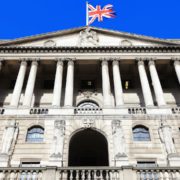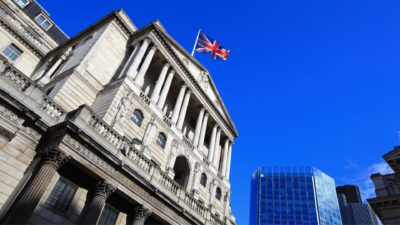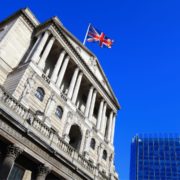Labour stuck to key pledges for the economy.
Pensioners should have some certainty.
Some taxes paid by working people wouldn’t rise – although they’ll still pay more tax.
Other taxes would rise for specific groups of people.
There could be more support with social care.
There could be more help for parents.
There are promises for drivers.
More properties could mean cheaper houses.
There’s support for the lower-paid.
There would be action on energy bills.
There might be less change in future.
Sarah Coles, head of personal finance, Hargreaves Lansdown:
“For Labour, it appears that less is more: when you’re carrying a Ming vase across a highly polished floor, you don’t want to be juggling anything else. So, as Keir Starmer attempts to keep a tight hold on a large majority on the way to the general election, he doesn’t want to weigh himself down with too many pledges and promises. And yet, we got some idea of what a Labour government might mean for you and for the economy.”
1. Labour stuck to key pledges for the economy
Susannah Streeter, head of money and markets. Hargreaves Lansdown:
“Labour is determined to keep a tight ship, and the manifesto makes it clear that ministers intend to steer the economy in a ‘steady as she goes’ fashion, with a keen eye trained on stimulating long-term growth, rather than immediate boosts to consumer spending power. That’s why there are no surprise announcements, with the party being super-careful about pledging changes to spending or fiscal rules that could rattle financial markets.
Keir Starmer has vowed to abide by tough spending rules to be seen as responsible with the country’s financial health, by ensuring debt falls as a share of GDP, or economic output, in five years’ time. However, Labour’s determination to be seen as economically credible may limit its ability to make immediate inroads into key pledges like saving the NHS.
Vowing to keep Corporation Tax at 25% through the next parliament will offer some stability for corporate Britain. Smaller businesses, particularly those on the high street, will welcome the latest pledge to scrap and replace the current business rates system, which for so long has been criticised for enabling big players, particularly the online giants, to gain an unfair advantage.
While it’s clear that the economy needs a long-term plan for investment, finding money to pay for better infrastructure, new energy systems and support high growth sectors, through the National Growth Fund, at the same time as fulfilling pledges for better public services, may be wishful thinking, given the current sluggish economy and painful payments on government debt. So, to avoid a big bazooka of investment misfiring further down the line, it may mean the fiscal rules will have to be tinkered with in the future, and further tax rises can’t be ruled out.
Ending the sunset clause for the energy payments levy, and increasing the duty by 3%, has not come as a surprise, given earlier pledges, and there will be some relief it’s not being backdated. But the confirmation appears to have prompted further falls in the share prices of North Sea oil operator, Harbour Energy, given how the levy has already significantly curbed its profits. However, giants BP and Shell were little moved, given that they are more able to absorb such an increase. With Brent Crude falling back on fresh demand concerns, there are questions over how just much will be raised through the levy.
While it’s clear that wealth creation is the headline in this manifesto, voters will require patience, given the limits any new government will be constrained by.”
2. Pensioners should have some certainty
Helen Morrissey, head of retirement analysis, Hargreaves Lansdown:
“There are no real surprises from a pensions perspective in today’s manifesto, with much of it released in advance. Labour’s pledge to maintain the triple lock on the state pension was made weeks ago and it was made very clear it wouldn’t go down the road of turbo charging it as the Conservatives have done with its triple lock plus. The decision not to try and trump the Conservatives on this will go down well with those who criticised the triple lock plus for favouring pensioners at the expense of working age people.
Labour has also reiterated plans to encourage pension schemes to invest more in the UK, as well as launching a review into the retirement savings landscape to make sure it’s working as well as it should. It’s hoped that the state pension is also included in this review to make sure it remains sustainable in the long term and that the state pension age doesn’t need to be hiked further in a bid to manage burgeoning costs.
The lifetime allowance didn’t get a mention within the document itself, but there was a collective sigh of relief earlier this week, with the news that Labour would not proceed with plans to reintroduce it. This ends a period of real uncertainty, with many people unsure whether to continue to contribute to their pensions or press the pause button for fear of getting a big tax bill. The decision not to bring it back means people can plan for their future with much more certainty, and enable the industry to get on with the tricky job of finalising processes around the abolition.
A notable absence from the manifesto is any detail regarding pension tax allowances. The Conservative manifesto says there would be no changes, allowing people to plan ahead and make full use of the allowances available to them. As yet, Labour has made no such promise, raising the prospect of things like the annual allowance or pension tax relief to be pruned back.”
3. Some taxes paid by working people wouldn’t rise – although they’ll still pay more tax
Sarah Coles:
“Labour has pledged that there will be no tax rises for working people. They have specifically ruled out rises to income tax, National Insurance and VAT. However, both Labour and the Conservatives have said they won’t tackle the misery of frozen tax thresholds. It means whoever is elected, you’re set to pay more tax.
Pay rises will continue to push more people into paying more tax. It has already meant 2.1 million more paying income tax and by April 2029, this is set to rise to an incredible 3.7 million. Meanwhile, the number of extra people forced to pay higher rate tax by the policy has hit 1.4 million, and will reach 2.7 million by April 2029. Moving tax brackets doesn’t just mean more tax on your income, it also slashes your tax-free savings allowance and pushes you into paying higher rates on everything from capital gains to dividends.
On top of this, there are other tax freezes and temporary cuts due to come to an end that Labour hasn’t pledged to extend, including the 5p cut in fuel duty and the stamp duty holiday set to end next March.
4. Other taxes would rise for specific groups of people
Other taxes will rise. There have been specific pledges to raise tax for non-doms, end the use of offshore trusts to avoid inheritance tax, change the capital gains tax treatment of private equity pay, raise stamp duty for non-UK residents buying residential property by 1%, and introduce VAT on private school fees.
For anyone who sends their child to private school, this will be another challenge on top of runaway fee rises in recent years. However, anyone tempted to consider one of the schemes that are claiming to get around VAT should think twice. Rules are highly likely to include measures designed to catch these schemes out, so you could end up wasting money, or stretching yourself to pay early, and facing the tax charge anyway.
Starmer made it clear that nothing in the manifesto will need additional tax rises, but Labour has not ruled out changes to capital gains tax. At this stage, it’s difficult to know exactly what these changes might be, or whether they would be needed, but for investors with holdings outside tax wrappers, there could be an extra cost. Labour said it is advocating for wealth creation, so it will have to tread carefully on CGT if it wants to ensure the right incentives are in place to create this wealth.
It remains vital to consider tax on your savings and investments. If you haven’t used your ISA allowance for this year, this is a key opportunity to protect any new investments or savings. Alternatively, it may be a chance to move existing investments into a tax wrapper through share exchange or bed and ISA. In any case, it makes sense to take action sooner rather than later, so your money is protected from tax regardless of who is elected.
5. There could be more support with social care
The manifesto makes no direct promises of a cap on care costs. Instead, it focuses on building a National Care Service with a fair pay agreement, and building consensus for the long-term reform that’s needed to make social care more sustainable. However, it has added that it wants to explore how to best help people as they get older, and anyone fearing the horror of catastrophic care costs will hope this includes addressing managing the cost of care.
6. There could be more help for parents
There was no update on existing plans to roll out free childcare to children aged nine months and over by September 2025, but given this is already on the books, it’s highly unlikely this will be touched. Labour has pledged to extend care by providing free breakfast clubs in every primary school. And for parents wrestling with the ridiculous cost of school uniforms, there will be a limit on the number of branded items schools can demand.
7. There are promises for drivers
In addition to fixing potholes, Labour has pledged to tackle runaway car insurance premiums, by working with the Competition and Markets Authority and the FCA to investigate whether the system currently penalises those on lower incomes.
8. More properties could mean cheaper houses
Labour says it would help people get onto the property ladder by building more houses. It has pledged to build 1.5 million homes during the next parliament, it would bring back housing targets, and reform the planning system. It would strengthen rules requiring more affordable homes to be built and ensure first-time-buyers could buy properties on new developments before they were sold overseas. It would also bring in a permanent mortgage guarantee scheme for those with smaller deposits.
Elsewhere on housing, it has also pledged to end leasehold properties – which it dubs fleecehold – and tackle ground rents. It would end no fault evictions for renters and allow renters to challenge unreasonable rent increases and raise standards.
9. There’s support for the lower-paid
Labour says it would ensure the minimum wage takes account of the cost of living, and would end age bands, so all adults received the same minimum wage. It would also ban zero hours contracts; end fire and rehire; and introduce rights to parental leave, sick pay, and protection from unfair dismissal from day one.
10. There would be action on energy bills
It has long-been a bugbear of campaigners, but Labour pledged to reduce standing charges. It would also double investment to upgrade the energy-efficiency of homes, introduce higher efficiency standards for rented home – and pledged nobody would be forced to rip out their boiler. The manifesto writers were clearly keen to emphasise that progress towards green targets can save people money rather than costing them more.
11. There might be less change in future
Labour has said it will move to a single major fiscal event each year – and give fair warning about any changes to tax or spending policies to allow people to plan. This could provide much-needed stability to tax policy and rules around key cornerstones of people’s financial plans – like pensions and ISAs. Of course, this may be easier said than done. We have seen pledges like this overcome by events in the past few years.”
Industry comments on Labour Manifesto
Isobel Thomson, chief executive of safeagent, the UK’s largest not-for-profit accreditation scheme for lettings and management agents, says: “Any legislation that raises standards is welcome and we look forward to seeing the detail of how the Section 21 abolition will work in practice should Labour win the general election.
“The enforcement required to underpin this legislation will need to be properly funded so we assume that an increased budget for local authorities to accommodate this has been factored in.
“We don’t like the ‘tenants as victims’ rhetoric that is circulating as there are many decent landlords ably supported by professional agents out there trying to do a good job. Ultimately, a fully-functioning PRS needs to work for landlords and tenants alike with one not gaining at the expense of the other.”
Reacting to the launch of Labour’s election manifesto, Gary Wright.Chief Executive Officer of deposit alternative specialists, flatfair, said: “We hope a Labour government would deliver on their promises around house-building and offering a fair deal for tenants.
“We all know the costs of renting have become far too high and without more landlords and more properties to grow the Private Rented Sector, this is only going to get worse – whoever is in government.
“Overall, flatfair tenants have saved over £40 million in upfront costs by replacing a traditional deposit with flatfair’s lower move-in costs of 1 week’s rent plus VAT – saving the average tenant more than £1000 at a time when it is most needed.”
Comments from Neil Cobbold, Commercial Director Reapit | PayProp
“It’s encouraging to see Labour focus on the undersupply of properties, which is at least partly responsible for the high cost of buying and renting. Building 1.5 million new homes for sale and social rent, reforming planning laws, and appointing 300 additional planning officers will help, but construction on this scale will also take time to deliver. We hope that the policy to create Skills England, a Labour-proposed organisation that will be tasked with ensuring training in England accounts for the overall needs of the labour market, will help equip our workforce with the skills needed to meet this target.
“Any proposed mortgage guarantee scheme, including those in the Labour, Conservative and Liberal Democrat manifestos, needs to be carefully reviewed to ensure it does not inflate house prices, pushing them further out of reach of the people it is designed to help.
“On the private rented sector, it is no surprise to see continued support for the abolition of Section 21 in the Labour manifesto. However, as we’ve argued before, immediately abolishing it without first reforming the court systems and creating new grounds under Section 8 will trouble landlords, which may further escalate prices as stock is withdrawn.
“We look forward to seeing details around Labour’s plans to ensure private rented sector properties meet minimum energy efficiency standards by 2030 – including what financing will be available. Proposals to extend ‘Awaab’s Law’ to the private rented sector should be welcomed, as no property professional wants to see renters live in substandard homes. Detailed record keeping of any maintenance requests and repairs will be critical for agents supporting landlords once this is enacted.”



























Comments